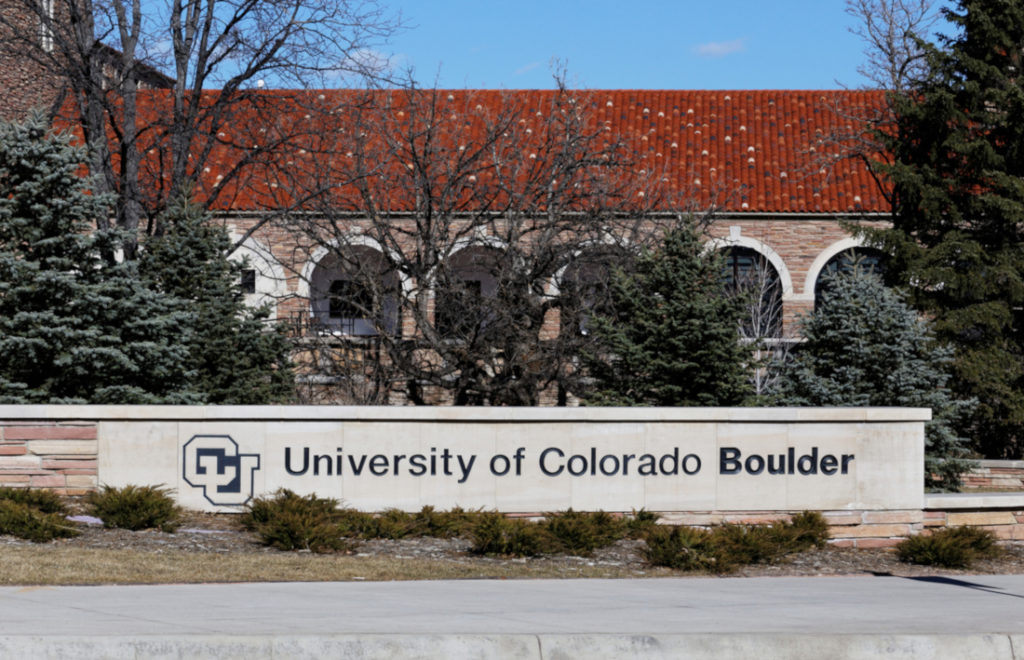By Jeffrey A. Roberts
CFOIC Executive Director
The Boulder Daily Camera on Thursday formally asked the state’s highest court to review the Colorado Court of Appeals’ 2-1 reversal of a district court ruling against the University of Colorado regents for refusing to publicly disclose the names and applications of all six candidates interviewed for the president’s job that went to Mark Kennedy in 2019.
The petition filed on the newspaper’s behalf by attorneys Robert Gunning and Eric Maxfield wants the Colorado Supreme Court to resolve the issue of who is considered a “finalist” for state and local government chief executive officer positions under the Colorado Open Records Act and, therefore, whose identity must be released to the public 14 days before a job offer is made.

“Through its open records act requests and this litigation, the Daily Camera sought to remove the shroud of secrecy draped over public bodies’ evaluation and selection of ‘finalists’ — the final group of individuals who were considered — to fill the position as the Chief Executive Officer of a governmental unit, including the four-campus University of Colorado,” the filing says.
“Left undisturbed, the published opinion … will have a huge adverse impact on the transparency of hiring processes for University Presidents, School Superintendents, Police Chiefs, City Managers, County Administrators, and other Chief Executive Officer positions statewide.”
A Denver District Court judge ruled in March 2020 that the regents should not have denied the Daily Camera’s CORA request for the names and applications of the six candidates they interviewed before naming Kennedy the sole finalist for the CU system presidency. The judge rejected the regents’ interpretation of CORA and the Colorado Open Meetings Law as “linguistic gymnastics.”
But two members of a three-judge Court of Appeals panel reversed the ruling in March, concluding that “a ‘finalist’ is a person who is disclosed by the appointing entity as a finalist — who is ‘made public.’” The third appellate judge dissented, writing that the majority opinion “leads to an absurd result because it allows each appointing entity unfettered power to determine who is a finalist. Different appointing entities can take different approaches and can manipulate their procedures to shield information from disclosure in spite of the policies served by CORA and the (open meetings law).”
The open meetings law requires “the list of all finalists under consideration” for a chief executive position be made public no later than 14 days prior to the appointment of one of the finalists. CORA defines finalist as “a member of the final group of applicants or candidates” made public under the requirements of the open meetings law, and it allows the public to inspect most records submitted by a finalist. It adds: “If only three or fewer applicants or candidates for the chief executive officer position possess the minimum qualifications for the position, said applicants or candidates shall be considered finalists.”
It is “absurd,” the Daily Camera’s petition argues, for the law to require that three or fewer candidates who meet the minimum qualifications be deemed finalists, “yet under the majority’s opinion, a public body may choose to disclose a sole finalist whenever there are more than three qualified finalists.”
The newspaper also contends that the Court of Appeals ruling “renders meaningless” words and phrases in both CORA and the open meetings law — including “member,” “group,” “list” and “one of” — that imply multiple finalists must be disclosed to the public.
The Court of Appeals decision, the petition says, also is contrary to previous Colorado Supreme Court rulings “that Colorado’s Sunshine Laws must be interpreted broadly in favor of public transparency.”
Although a bill recently passed by the Colorado House would explicitly allow the naming of sole finalists for government chief executive positions, the Daily Camera’s petition says the resolution of the legal case will still have “significant, statewide impact,” even if House Bill 21-1051 becomes law. The measure wouldn’t affect several recent announcements of sole finalists for high-profile positions (such as the Jefferson County school board’s naming of Tracy Dorland to be the school district’s next superintendent). Those selection processes, the petition says, “will remain subject to secrecy and the attendant public skepticism of the wisdom of those selections.”
The legislation also wouldn’t affect a similar court case in El Paso County District Court. Last year, a judge found that the Academy District 20 school board improperly denied parent Melanie Knapp’s CORA request for the names and applications of all finalists considered for the superintendent’s job. In a recent court filing, the district asked Judge Thomas Kane to reconsider and reverse his ruling in light of the Court of Appeals decision in the Daily Camera case.
But Maxfield and Gunning, who represent Knapp, noted in a brief that the Court of Appeals ruling isn’t “binding” at this point because the appellate court hasn’t issued a mandate, officially closing the case. The ruling is “not binding authority on this Court,” they wrote, “and, depending on the actions of the Colorado Supreme Court, may never be.”
Follow the Colorado Freedom of Information Coalition on Twitter @CoFOIC. Like CFOIC’s Facebook page. Do you appreciate the information and resources provided by CFOIC? Please consider making a tax-deductible donation.




